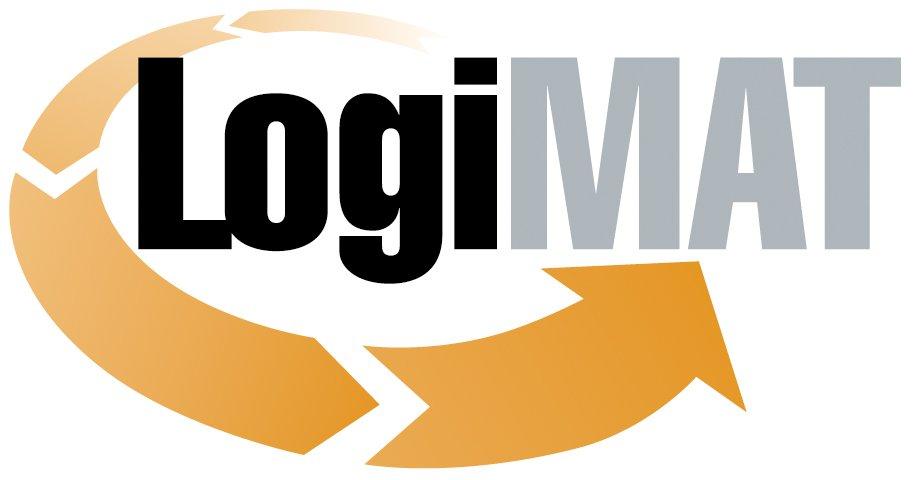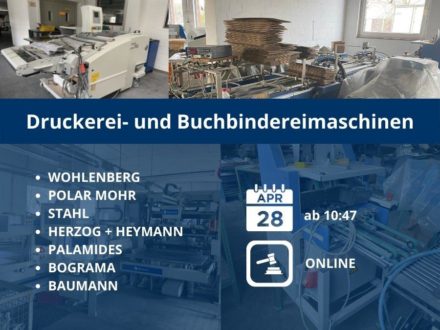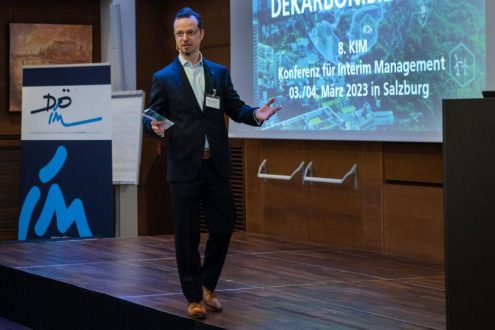
AI Expands the Reach of Software
It’s the age of analytics in factory and transport logistics! The software companies exhibiting at LogiMAT 2024 are departing from the trend of previous years to present products and solutions developed more for depth than breadth. They apparently consider their portfolio for the integration of enterprise software systems to be largely complete. LogiMAT 2024 will still include the latest developments on this front—including suites and app platforms with freely configurable modules for warehouse management systems (WMS) and transportation management systems (TMS), plus options for the direct control of intralogistics automation systems. But what’s really driving current trends in nearly all areas of intralogistics software right now is the integration of AI, which is opening up new horizons for tried-and-tested systems and their users. AI algorithms yield the potential to further automate processes and enhance efficiency through the advanced analysis of existing data. That’s because modern software systems act as central hubs that interconnect a wide variety of third-party systems, machines, and end devices with access to their performance data. They offer an overview of all relevant business processes and key performance indicators (KPIs). “Given all this, it’s only natural that developers would leverage today’s lightning-fast processing speeds and huge storage capacities and integrate specially programmed AI algorithms into their software for the purpose of analyzing data, enhancing visibility, and tapping into any potential gains,” remarks Exhibition Director Michael Ruchty from Munich-based event organizer EUROEXPO Messe- und Kongress-GmbH. “In Hall 8 at the Messe Stuttgart convention center, most of the software companies at this year’s LogiMAT will be focusing on the diverse palette of use cases available to their customers with their recently developed AI-based software solutions.”
Optimizing routes, inventory management, and demand forecasting
The complex, dynamic processes of modern logistics and intralogistics depend on smart software systems. Besides WMS and TMS, these systems include enterprise resource planning (ERP), materials management, and customer relationship management (CRM). The logistics industry generates huge volumes of data, and AI algorithms make it possible to very quickly obtain in-depth analytics of this data. They identify patterns and complex interdependencies in real time, delivering results that yield reliable information on route optimization, inventory management, or demand forecasting to empower sound strategic decision-making. Software with simulation scenarios supports needs-based equipment and material flow planning for logistics centers or location and network planning for an efficient supply chain. All of this is reflected in the improved systems, new applications, and automation options for smart data management under the theme “SHAPING CHANGE TOGETHER: Sustainability – AI – Ergonomics” at LogiMAT 2024.
Simulations, by running data analytics for the purpose of improving performance and optimizing the initial planning or expansion of intralogistics facilities even before they come online, offer a foundation to optimize the scaling of sites and shorten implementation times. Hall 8 brings together various exhibitors presenting the latest versions of systems, modules, and applications for simulations, virtual go-lives, and digital twins of production and logistics processes. These tools are also designed to identify and compare dynamic interactions of cross-enterprise changes in the supply chain, taking into account such key factors as inventories, transport times, and carbon footprint. Also on offer is an ERP system that consolidates all logistics-related enterprise data in a company-wide “single point of truth”: from procurement management and production logistics to storage, warehouse organization, distribution, and service. The aim is to analyze and evaluate enterprise data in its entirety, including cause-and-effect relationships, without any disruption in the digital exchange of data.
Accelerating picking processes by over 20% with AI analytics
The exhibits around warehouse management will include fully configurable systems, the latest cloud-based WMS versions with inventory reconciliation across multiple locations, direct warehouse technology control via forklift terminal without a backend or server, and a new type of warehouse control tower using real-time analytics to optimize and quickly adapt a WMS suite to evolving needs. A new AI-based IT platform will also be on display, designed to analyze WMS-driven logistics processes and boost the efficiency of picking processes by more than 20 percent.
Software companies are also confirming the trend toward the increased integration of generative AI and ChatGPT into real-world applications to digitize and automate more tasks and relieve human workers of routine activities. The intelligent chatbots are designed to make systems more user-friendly through personalized user experiences and intuitive interfaces. One exhibitor is integrating ChatGPT into the AI-based logistics platform so that requests for delivery status and product availability, which are formulated in natural language, can be filtered by top sellers and personalized warehouse reports can be generated. The AI uses interactive chat dialogs to support employees in the process. Another exhibitor will demonstrate how even users without a technical background can use ChatGPT to integrate business rules for internal process automation directly into a combined transport and document management system.
AI algorithms in a warehouse execution system help further integrate enterprise systems internally. A digital twin maps all warehouse movements in real time. Forklifts not only move goods, they also transmit their data. The integration of AI technologies makes it possible to distribute transport orders dynamically and optimize the overall performance of the warehouse. The warehouse execution system uses digital twin algorithms and real-time location data to coordinate manual and autonomous vehicles for greater efficiency and flexibility. Another innovation focuses on the AutoStore storage system: An AutoStore connector integrated into the warehouse management software receives transport orders from the WMS, splits them up, then passes them to the connected automated components. The connector coordinates the transports with an eye on capacities and while allowing for manual user interventions. Other software on display in Hall 8 include a newly developed system for efficient workflow management, a new module for assessing sustainability and easily creating rental models for your own unit load devices in software that automates load device booking and tracking, and a converter that automatically transforms outdated SAP applications into a modern, user-friendly app.
TMS and supply chain engineering
Beyond intralogistics, developers are relying on AI to design more resilient and efficient transports and supply channels and to support an integrated, collaborative, end-to-end supply chain with real-time performance data. TMS software is augmented to include document management so that freight documents can be efficiently scanned and securely digitized for quick access. KPI-driven scheduling management and route planning with cloud-based, graphical warehouse scans ensure precise handling of individually packaged goods. A new system integrating TMS software, telematics, and a driver app is designed to avoid unnecessary idle time and detours by integrating vehicle-, driver- and route-related information in real time. Another cloud-based TMS innovation for route optimization and planning uses AI to capture the specifications of human dispatchers, run planning ops in milliseconds, optimize the specifications, and store successful results in its memory for future calculations. Also on display will be the latest version of a fully cloud-based transport control center for automated route planning and more precise forecasting of estimated arrival times. The control center comes with an optional add-on dashboard module for transparent reporting.
Other innovations focus on AI-based supply chain engineering. Digital twins, for example, use AI algorithms to calculate optimum solutions in real time. A digital twin can figure out how to best cover a given delivery zone with the ideal collaboration of multiple distribution centers. The calculation can reflect any combination of orders on hand, weight, volumes, or quantities that the user specifies. An interactive scenario manager makes it easy to compare and evaluate all scenarios. Industry professionals will also be able to check out a cloud-based tool designed to increase supply chain visibility and improve supply chain management, collaboration, and communication. A supply chain network design tool supports users with supplier evaluations and sourcing strategies based on specific criteria. A predictive planning suite gives small and medium-sized enterprises a supply chain planning platform using AI and machine learning with new features for inventory management, demand and production planning, forecasting, and sales and operations planning. These enhancements are designed to optimize supply chain planning and control and provide precise forecasts of future inventory and material requirements.
“The latest solutions presented by software developers at this year’s LogiMAT illustrate the many ways in which IT systems are shaping warehouse, transportation, and supply chain management,” concludes Exhibition Director Ruchty. “The latest innovations also show how quickly and effectively software companies are integrating technological breakthroughs such as AI into their products to give users more options for optimizing performance through in-depth analytics and real-time adaptability. Given the rapid progress in adjacent technologies, we expect to see some exciting new trends here in the years ahead. That will be the subject of future LogiMAT shows."
About LogiMAT
LogiMAT, the International Trade Show for Intralogistics Solutions and Process Management, will take place at the Messe Stuttgart convention center, directly adjacent to Stuttgart International Airport, from March 19 to 21, 2024. LogiMAT, organized by EUROEXPO Messe- und Kongress-GmbH, ranks as the world’s largest trade show for intralogistics solutions. It offers a complete market overview of everything driving the intralogistics industry, from procurement to production to shipping. International exhibitors showcase innovative technologies, products, systems, and solutions for streamlining operations, optimizing processes, and cutting costs in a company’s internal logistics. Beyond the exhibitor booths, visitors can also experience a different program of presentations each day covering a wide range of topics.
LogiMAT also has a presence in various international markets. Upcoming events:
LogiMAT India, February 28 to March 1, 2024, IEML, Delhi NCR, India
LogiMAT China, May 8–10, 2024, SZCEC, Shenzhen, China
LogiMAT Southeast Asia, October 16–18, 2024, BITEC, Bangkok, Thailand
LogiMAT.digital is the platform that brings together top providers of the world’s best intralogistics solutions with high-quality leads, bridging the time and space between on-site events.
EUROEXPO Messe- und Kongress-GmbH
Joseph-Dollinger-Bogen 7
80912 München
Telefon: +49 (89) 32391-249
Telefax: +49 (89) 32391-246
https://www.euroexpo.de
Leitung Marketing
Telefon: +49 (89) 32391-249
Fax: +49 (89) 32391-249
E-Mail: xenia.kleinert@euroexpo.de
![]()




